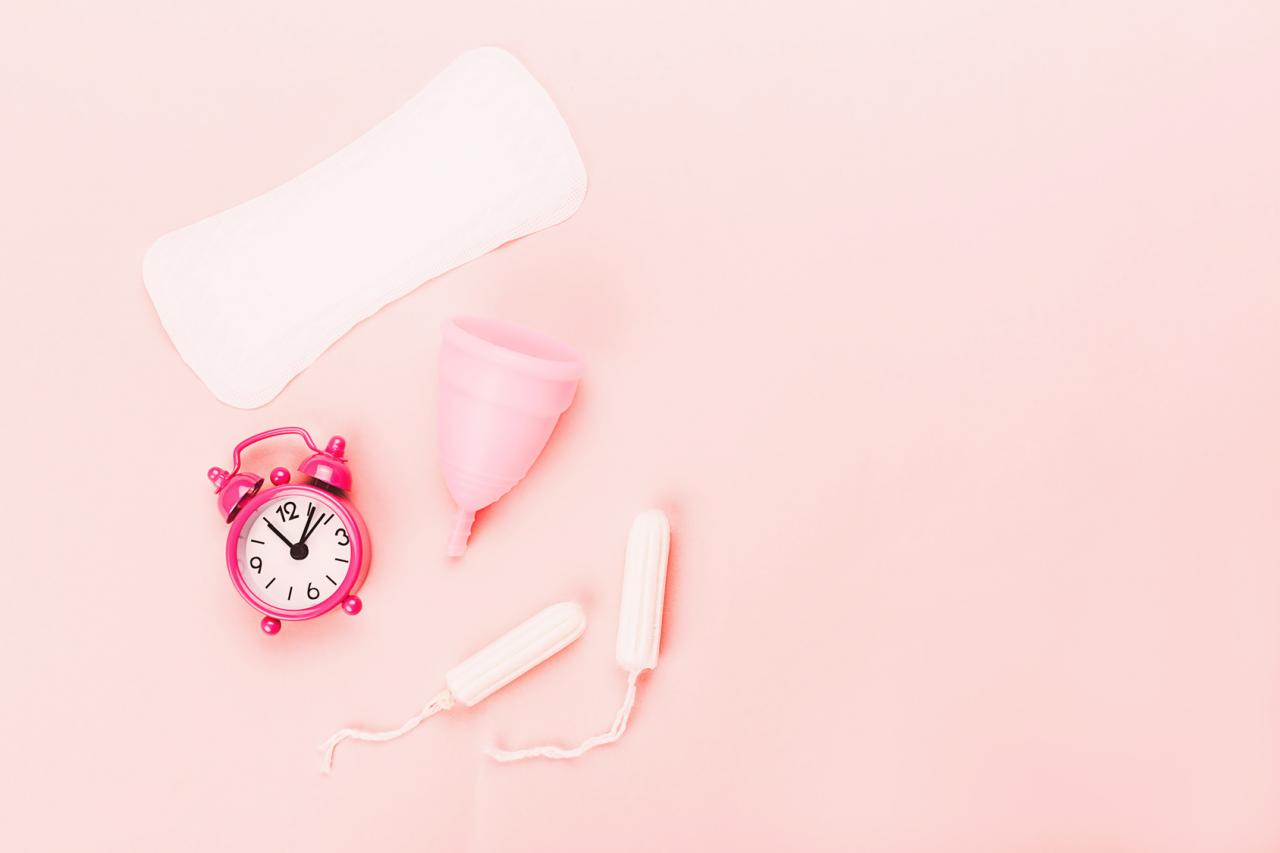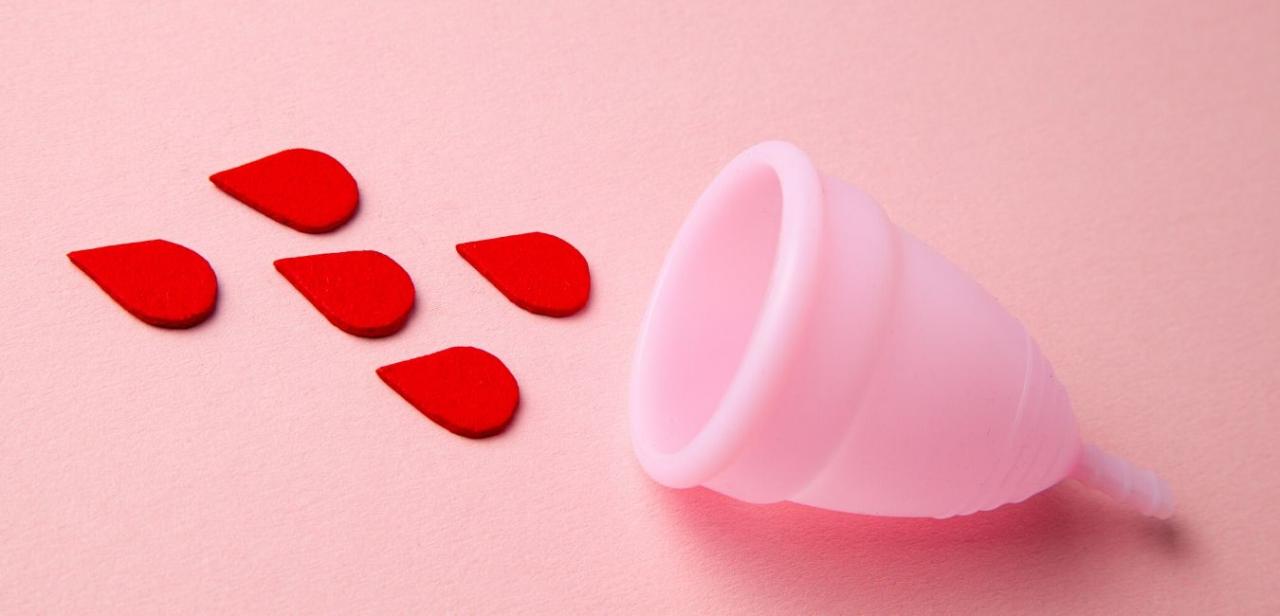 Andres Rodriguez/PhotoSpin
Andres Rodriguez/PhotoSpin
The menstrual cycle occurs in all females from the onset to puberty (average age 11 or 12 years) to the menopause in middle age (average age between 45-55). The lining of the uterus is shed via vaginal bleeding when a girl or woman has not conceived a pregnancy.
The menstrual period lasts between two days and seven days, usually occurring once every 28 days, although anything from once every 24 days to once every 35 days is considered normal.
If you are having a period more than once every 24 days, it is considered an irregular cycle.
Having a period once every two weeks, or twice a month is abnormal and you should see your doctor because you may become anemic if you are having very frequent periods. They are sometimes a sign of infection or other medical problem that would need treatment.
Reasons for a period every two weeks could be:
• Dramatic weight loss or gain -- This changes the hormones in the body and these are responsible for directing when the period will start.
• Excessive exercise -- This too disrupts hormones.
• Stress -- Exams, family argument, financial worries, divorce, even a holiday can cause a temporary change in your menstrual cycle.
• Illness and/or medications -- Some medications can affect your cycle. Talk to your doctor about altering or stopping your medication if you think this is happening.
• Uterine problems such as polyps, cysts, fibroids or tumors (either benign or cancerous).
• Sexually transmitted infections -- These can cause bleeding in between periods which can be mistaken for a period.
• Thyroid problems -- Thyroid disease could cause a thickening of the uterine lining, resulting in more bleeding than normal.
• Reactions to contraceptive methods -- Sometimes the pill, depo provera injections or the copper-only IUD can result in a change in your cycle.
~ The pill and IUD can make you bleed in between periods, known as "breakthrough bleeding" and this may be mistaken for a period.
~ The IUD can also make your periods heavier.
~ The depo-provera injection can make your cycle irregular, however, it often stops your period altogether instead of making it more frequent.
~ Sometimes changing or stopping your method of contraception can cause a sudden drop in hormones and this can result in a change to your cycle.
• Onset of menopause -- In women aged 45 and over, having periods every two weeks can be a sign that you are about to go through menopause. It can be a sign of ovulation beginning to shut down. If you are under 45, having irregular periods in addition to other symptoms commonly associated with menopause, may signal premature ovarian failure.
Treatment
Sometimes treatment is not necessary, for instance, if the disruption in cycle is due to stress, weight loss or gain, or illness, it may be temporary and may correct itself in time.
However, to rule out other possibilities your doctor will perform a pelvic examination. Your doctor may also take a sample of the uterine lining as well as doing an ultrasound scan to see if there are any obstructions in the uterus, such as fibroids.
If any obstructions are found, you can be referred for surgery to have them removed. If any cancer is found, you will be referred to an oncologist who will plan your care with you.
Sexually transmitted infections can be treated with antibiotics (and the use of condoms to prevent further infections). Your partner may have to be treated as well.
If the problem is caused by a contraceptive device or medication, this can usually be changed to stop the problem.
Heavy and/or frequent periods can sometimes be controlled by certain brands of the pill. If you find they are really disrupting your life, for instance, you are bleeding through your clothes, have to miss work days and can’t plan your holidays, this may be an option depending on your medical history.
Hormone treatment could also be given in this scenario, if you have thyroid disease or if you are starting menopause.
Sources:
Periods, Heavy. NHS Choices. Web. 26 May 2012. http://www.nhs.uk/conditions/periods-heavy/pages/introduction.aspx
Heavy Periods (Menorrhagia). WebMD. Retrieved May 27, 2012.
http://women.webmd.com/guide/heavy-period-causes-treatments
Top Ten Causes of Heavy Menstrual Bleeding. About.com Women's health. Retrieved May 27, 2012. http://womenshealth.about.com/od/abnormalbleeding/a/causemenorrhagi.htm
Irregular Periods Every Two Weeks, 34 Menopause Symptoms. Web. 26 May 2012.
http://www.34-menopause-symptoms.com/irregular-periods/articles/irregular-periods-every-two-weeks.htm
Premature Ovarian Failure, National Insititute for Child Health and Human Development. Web. 26 May 2012. http://www.nichd.nih.gov/health/topics/Premature_Ovarian_Failure.cfm
Joanna is a freelance health writer for The Mother magazine and Suite 101 with a column on infertility, http://infertility.suite101.com/ She is the mother of five children and practices natural childbirth, delayed cord clamping, full term breastfeeding and organic food diet.
Reviewed May 28, 2012
by Michele Blacksberg RN
Edited by Jody Smith





Add a Comment221 Comments
I had sex on the 22nd of August and I started my period on the 20th of August and today for some reason I had spots of blood and I just turned 18 I think that I'm pregnant but I dont know until I get a test done on the 20 of September. My mom said before her first pregnancy the same thing happened to her.
September 2, 2016 - 6:53pmThis Comment
Hello Anonymous,
I can appreciate how frightening this must be, but there is a likely explanation. The menstrual cycle is regulated by a precise balance of hormones. Any upset will cause an irregularity.
Please reach out to your gynecologist, who can order blood tests to check your hormone levels.
Regards,
August 6, 2016 - 8:27amMaryann
This Comment
Hi, I am a 17 year old and only just recently have I experienced my first time getting my period twice in a month. I'm not too sure what to pinpoint the cause of this? I know since I'm still a teen, I'm developing, so my periods might be irregular (which they were irregular, as in always a couple days apart the next month). My first cycle lasted 14 days, before I got my period again, lasting 11 days. Bleeding only lasts 4-5 days.
August 4, 2016 - 12:00pmI'm a bit scared. I don't know how to fix this. I'm not taking any contraceptives, nor have I ever been sexually active. I do take melatonin regularly, though.
This Comment
Hello, i can not though find answer to my situation no where, so I hope you can at least give me some leads where to. I'm 31, and all my life so far I've been having irregular periods- never excessing 21 days between them, mostly not even having 3 full weeks without a period- after 17, 19 days again observing a period. I thought maybe after childbirth something would change, it didn't. No cysts, no cancer, no illness, no pills, or medication detected by any doctor. Blood tests good, healthy.
August 2, 2016 - 8:58amMy body has gone through different changes ( healthy weight, a little doing sports, after birth of my children 30 kg overweight, then again back to normal weight and way too healthy lifestyle: running, exercise, healthy eating), but it always stayes the same, I mean my sequence of periods- irregular. Is this maybe my case my normal of being this way, or should I look for an answer somewhere else.
This Comment
Hi! I'm 39 and I've had my last 3 periods every 2 weeks. Should I be concerned?
August 1, 2016 - 9:58amThis Comment
i married four months ago . my wife has period just after fifteen days every month . she is still waiting for her her first pregnancy plz give me a solution soon .
July 30, 2016 - 11:08pmThis Comment
Hello Anonymous,
Your wife needs to schedule an appointment with a gynecologist. a period every 15 days is not normal. The reason for this must be identified and treated before she can conceive.
Maryann
August 1, 2016 - 8:38amThis Comment
Hello Maryann, I am 45yrs. I did my period in July 11th and today July 28th I am seeing blood again. What could have caused this.
July 28, 2016 - 12:43pmThis Comment
Hello Anonymous,
This may be a sign that you are in early menopause. Some women start to experience fluctuations in estrogen levels in their 40s. The fluctuations present with menstrual cycle irregularities.
As ovulation becomes more unpredictable, the length of time between periods may be longer or shorter, your flow may be light to heavy, and you may skip some periods. If you have a persistent change of seven days or more in the length of your menstrual cycle, you may be in early perimenopause. If you have a space of 60 days or more between periods, you're likely in late perimenopause.
Regards,
July 29, 2016 - 10:01amMaryann
This Comment
Hi, am 22plus, and just this morning i noticed am having my flow started again after having early this month. Is this ok?
July 27, 2016 - 2:00amThis Comment